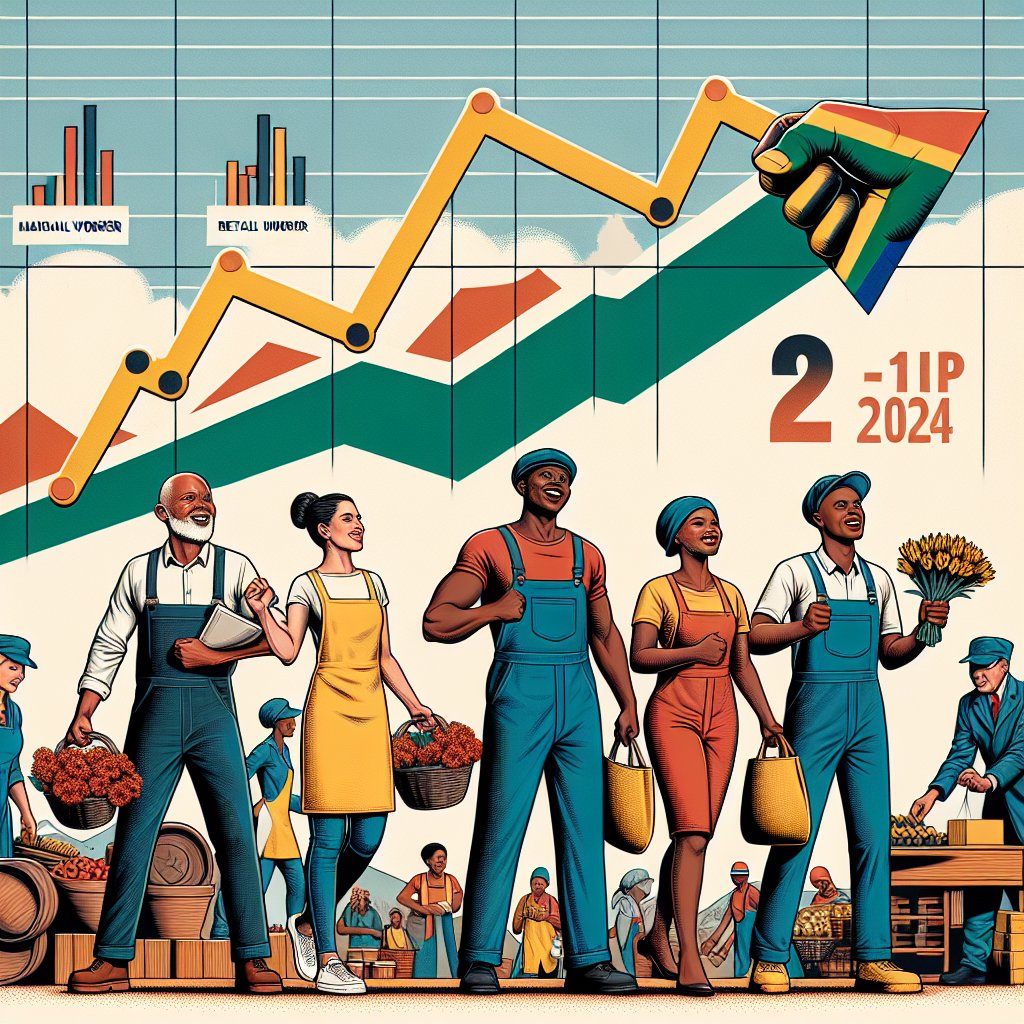Content created by AI
South Africa Edges Towards Improved Wage Conditions as Unions Applaud Proposed Minimum Wage Increase
A stride forward has been taken in South Africa's labor market as the National Minimum Wage Commission pitches a wage increase that aligns with the consumer price index (CPI) plus an additional 3%. This proposition has been met with approval from various trade unions and economists. Expected to be ratified by the employment and labour minister in February 2024, the adjustment aims to be effective from March 1 of the same year.
The CPI, which sat at 5.5% in November, serves as a base for the proposed wage enhancement. The Commission's proposal follows active negotiations and is poised to buffer against the inflationary pressures that erode the purchasing power of South African workers.
Labour circle stalwart Matthew Parks, acting as the national spokesperson for Congress of South African Trade Unions (Cosatu), articulated the federation's support for the upcoming wage amendment. Cosatu’s influence, having tabled the wage increase proposal to the Commission, demonstrated labor's inherent power in shaping economic outcomes that directly benefit the workers.
Parks highlighted the progressive trajectory of the NMW, which saw a substantial increment from its R20 per hour inception in 2019 to its current R25.42, with an anticipation to exceed R27.50. The leveling up of wages for domestic and farm workers, previously subjected to marginal payments, signified a tangible upliftment in labor wage structures.
The proposed wage hike is more than a mere economic adjuster; for Parks, it embodies a stimulant for economic growth, promising to invigorate spending and employability across various sectors, notably in farming, domestic, retail, and transportation. The impact, purported to touch more than six million workers, is considerable in both breadths and depth, encompassing segments that traditionally suffer from lower wage thresholds.
Challenges remain as Cosatu calls for stricter enforcement of the NMW Act, urging a crackdown on non-compliant employers. A staggering estimate of 45% of employers evading compliance marks a significant blow to legal and ethical workplace standards.
On the same accord of support, Trevor Shaku from the South African Federation of Trade Unions (Saftu) expressed a begrudging acceptance of the increase. Yet, it was underscored that the current minimum wage lags considerably behind the actual costs needed for a standard household grocery basket; Saftu's pursuit of a living wage remains a priority.
The academic perspective, represented by Professor Irrshad Kaseeram of the University of Zululand, concurred on the increase but injected a clear-eyed view of the limitations—pointing out that the suggested wage rate rise will hardly alleviate the high living costs marked notably by food and fuel prices.
Contributing another layer of analysis, Dick Forslund from the Alternative Information and Development Centre (AIDC) contemplated the implication of the minimum wage as a possible ceiling in formal employment, projecting a need for redistributing profits into wages for economic equilibrium.
Public opinion on the proposed increase is invited until January 8, as the Department of Employment and Labour urges written representations.
#GOOGLE_AD










